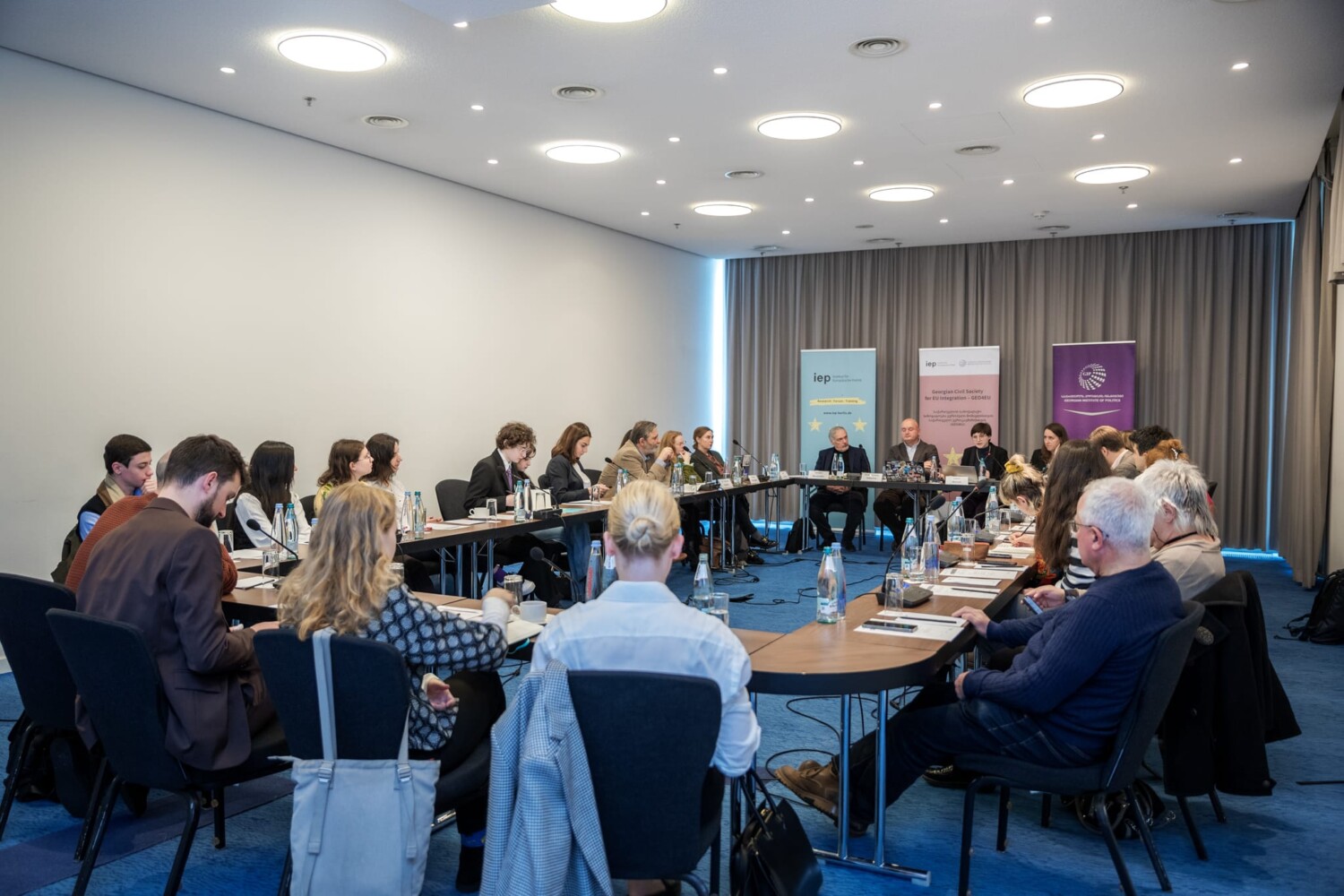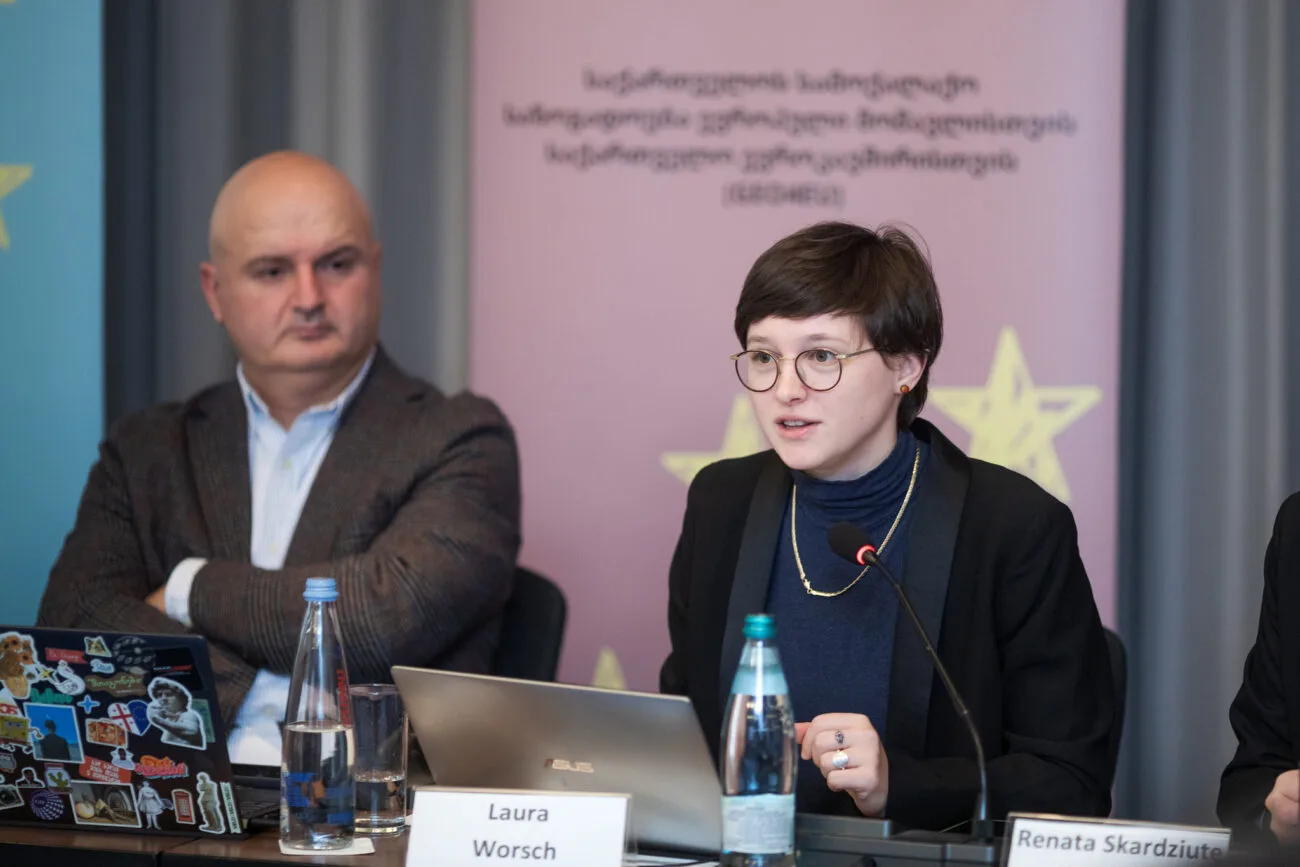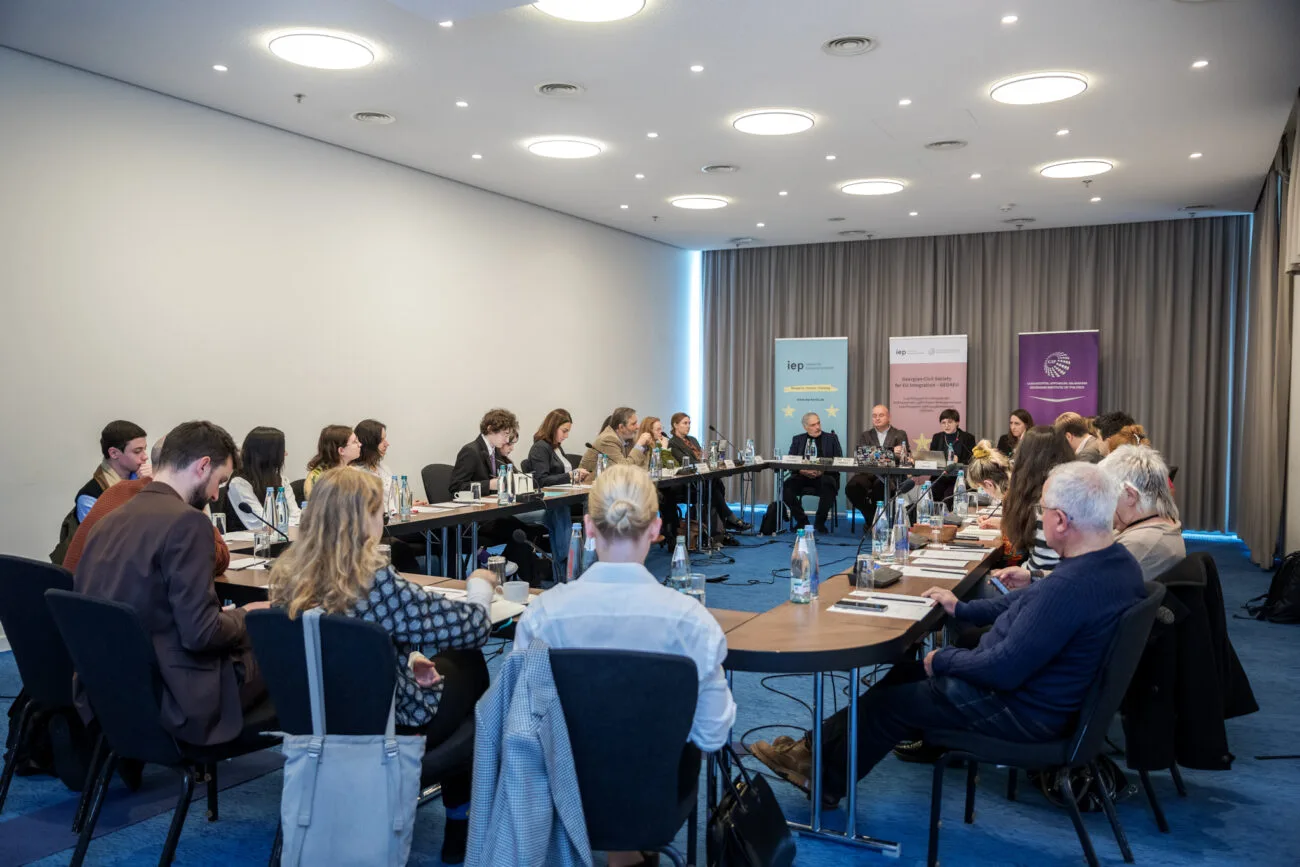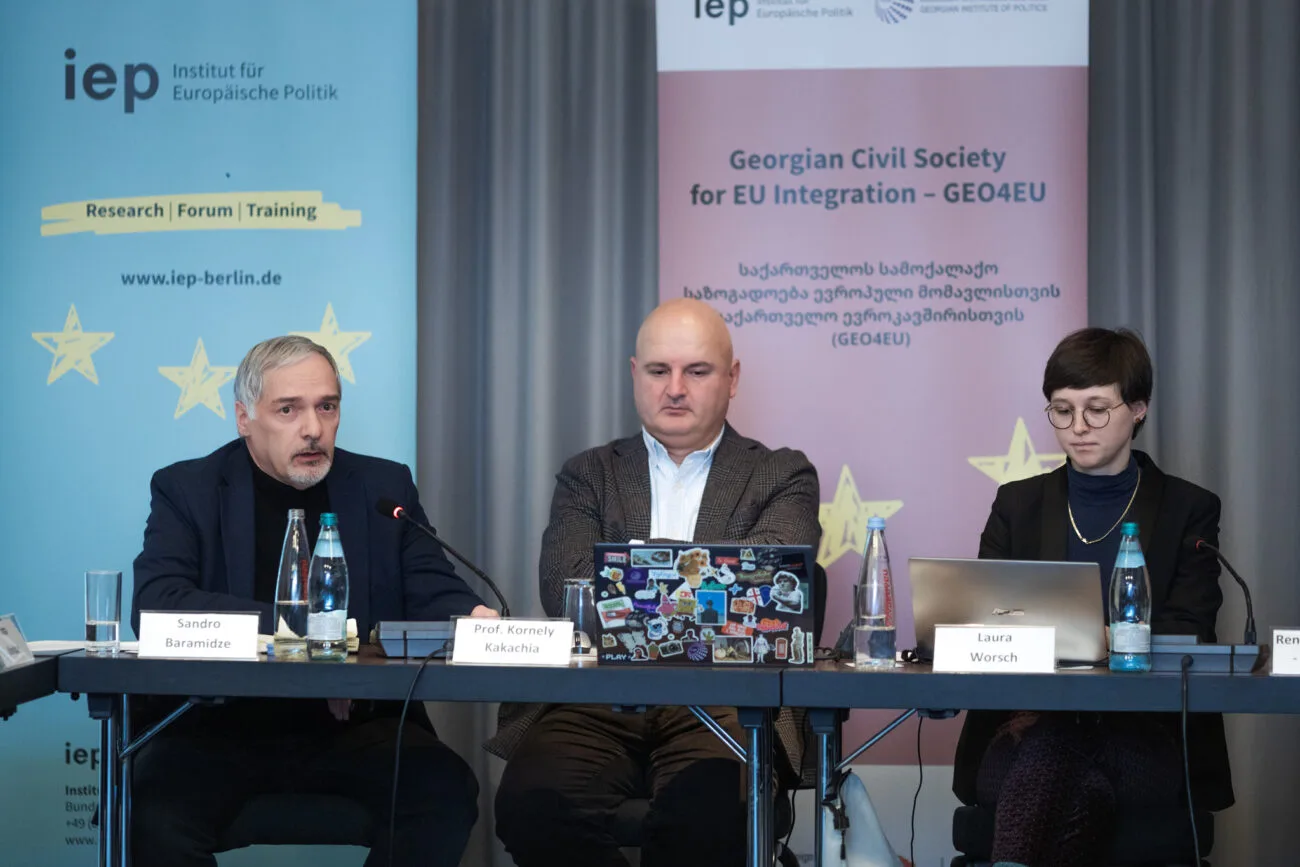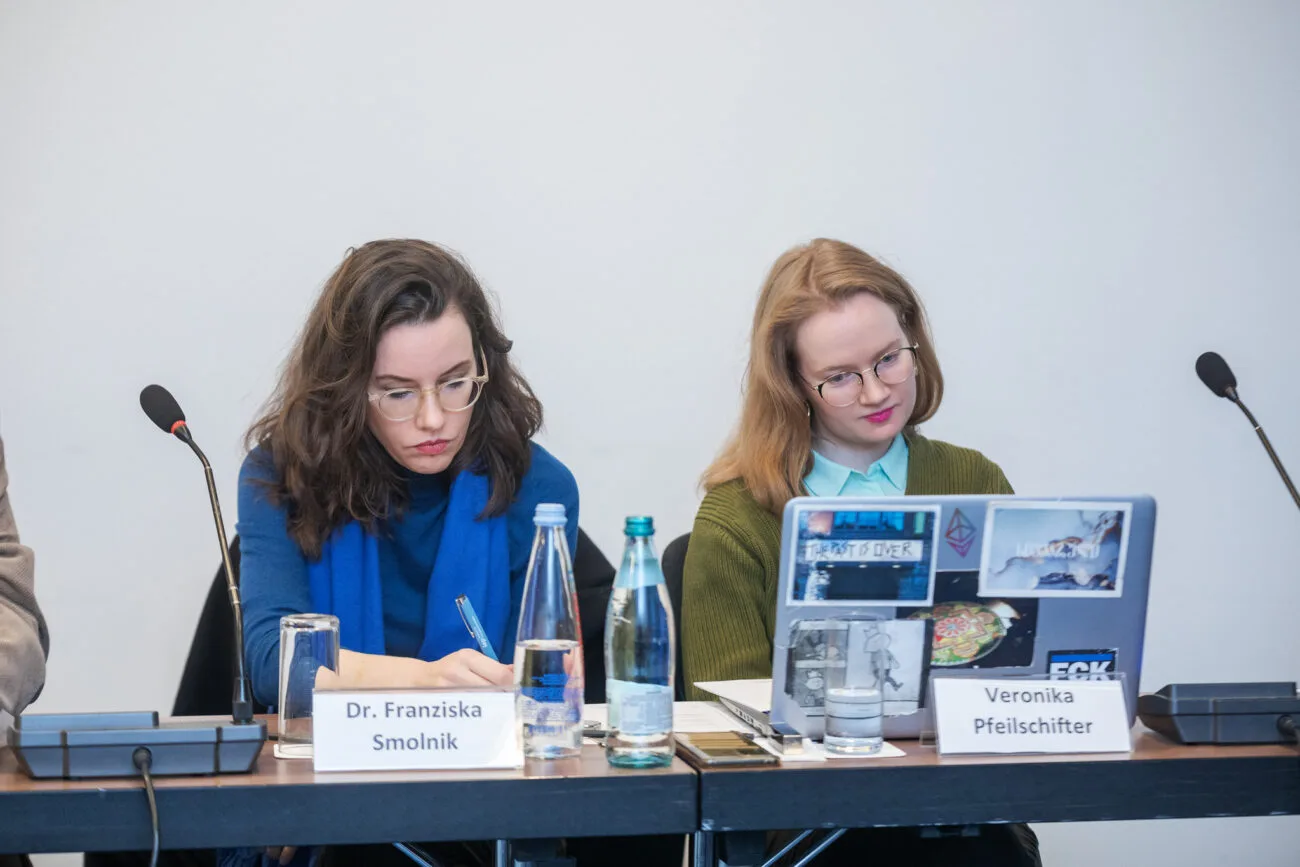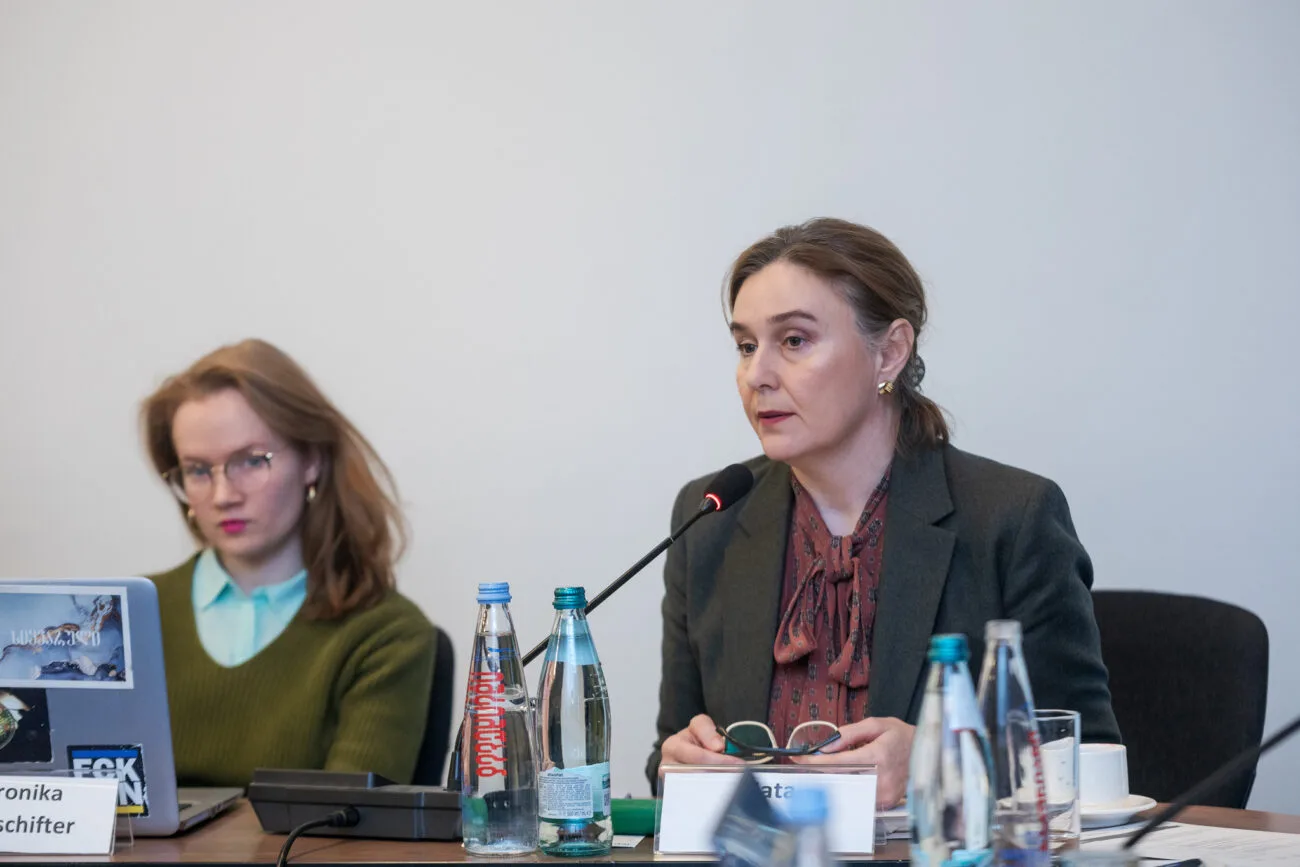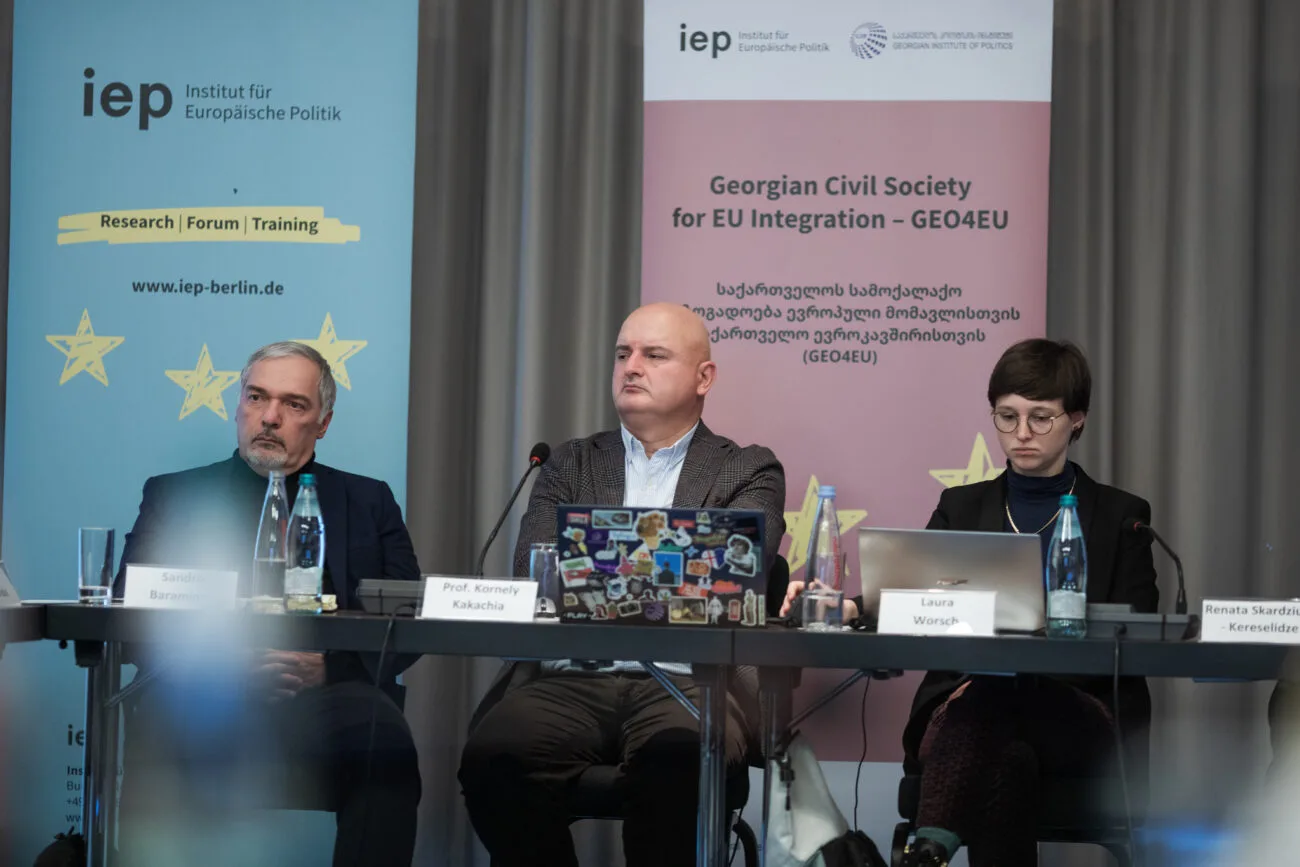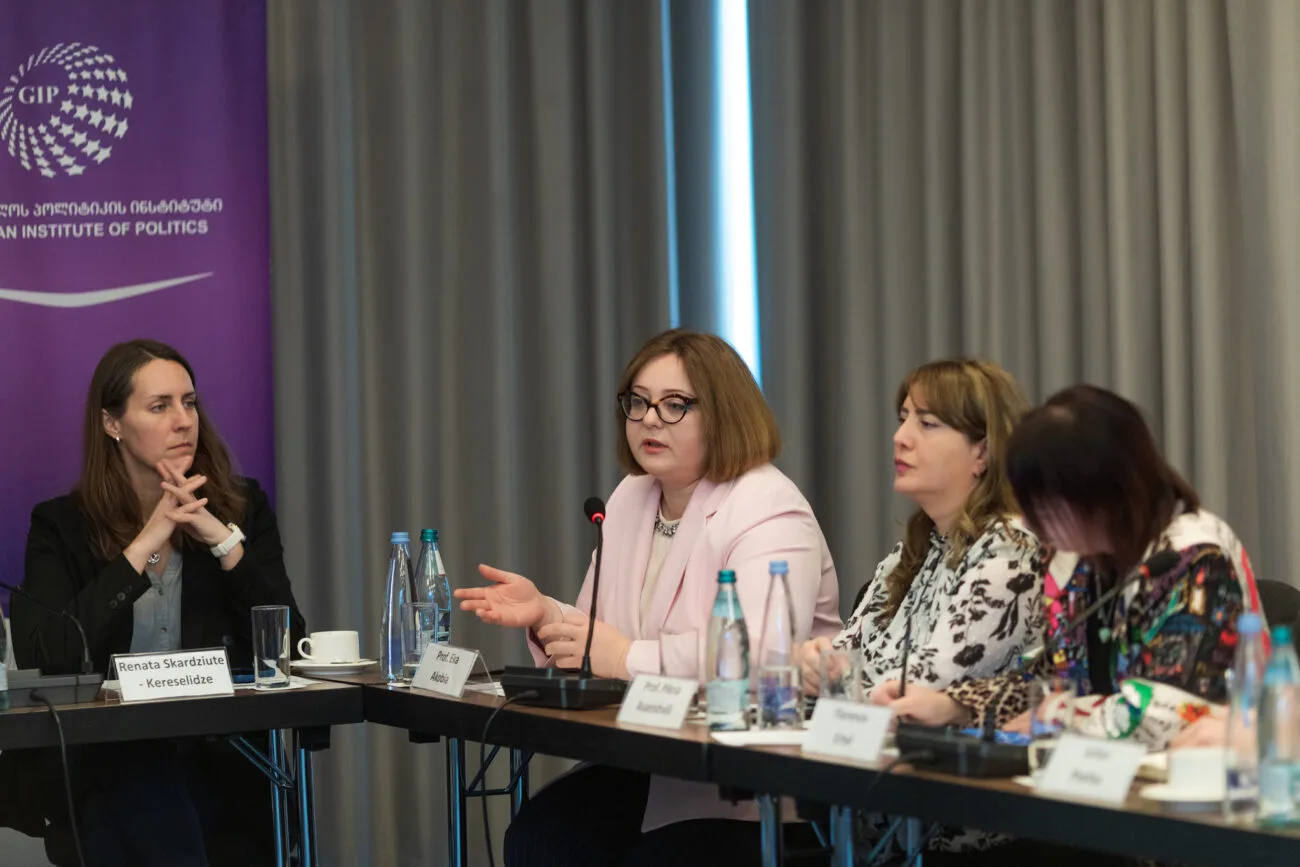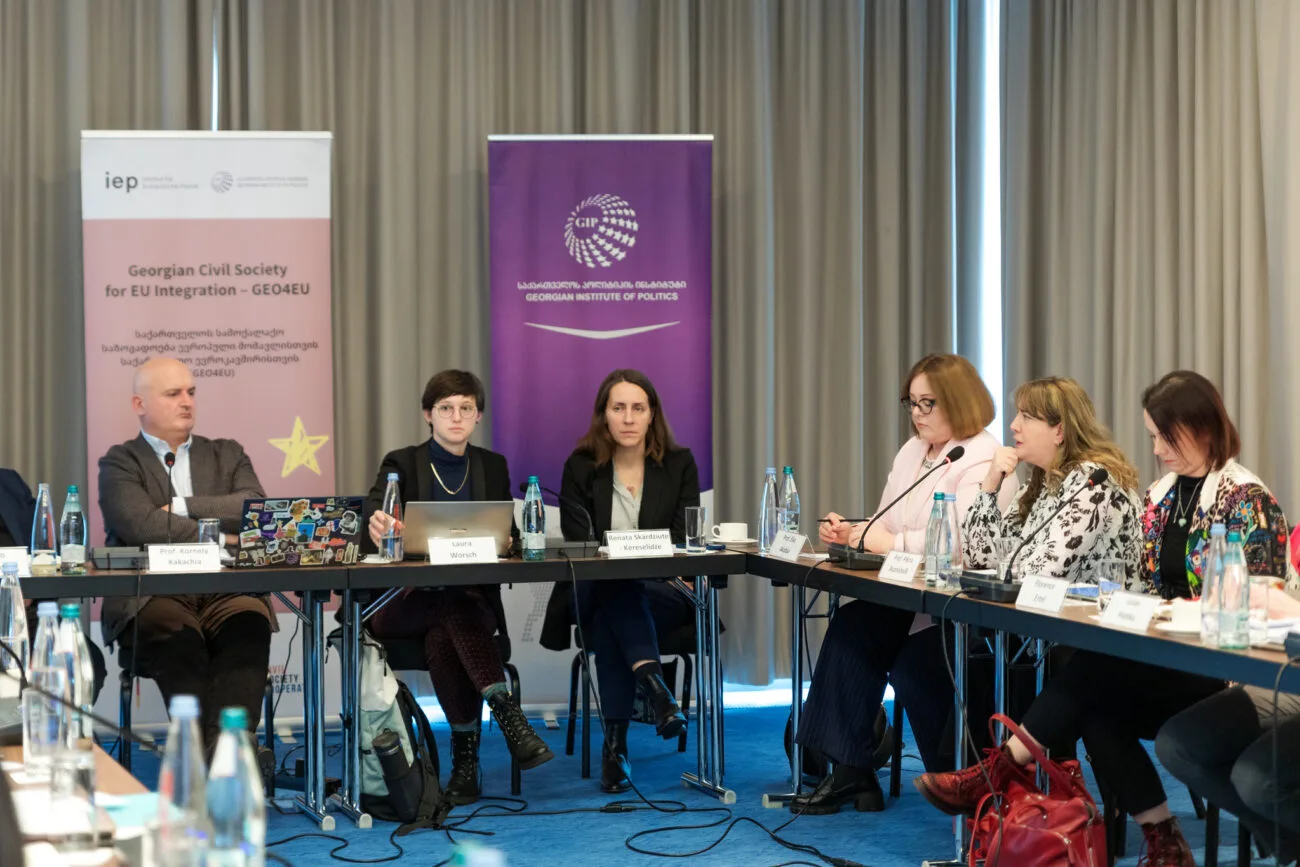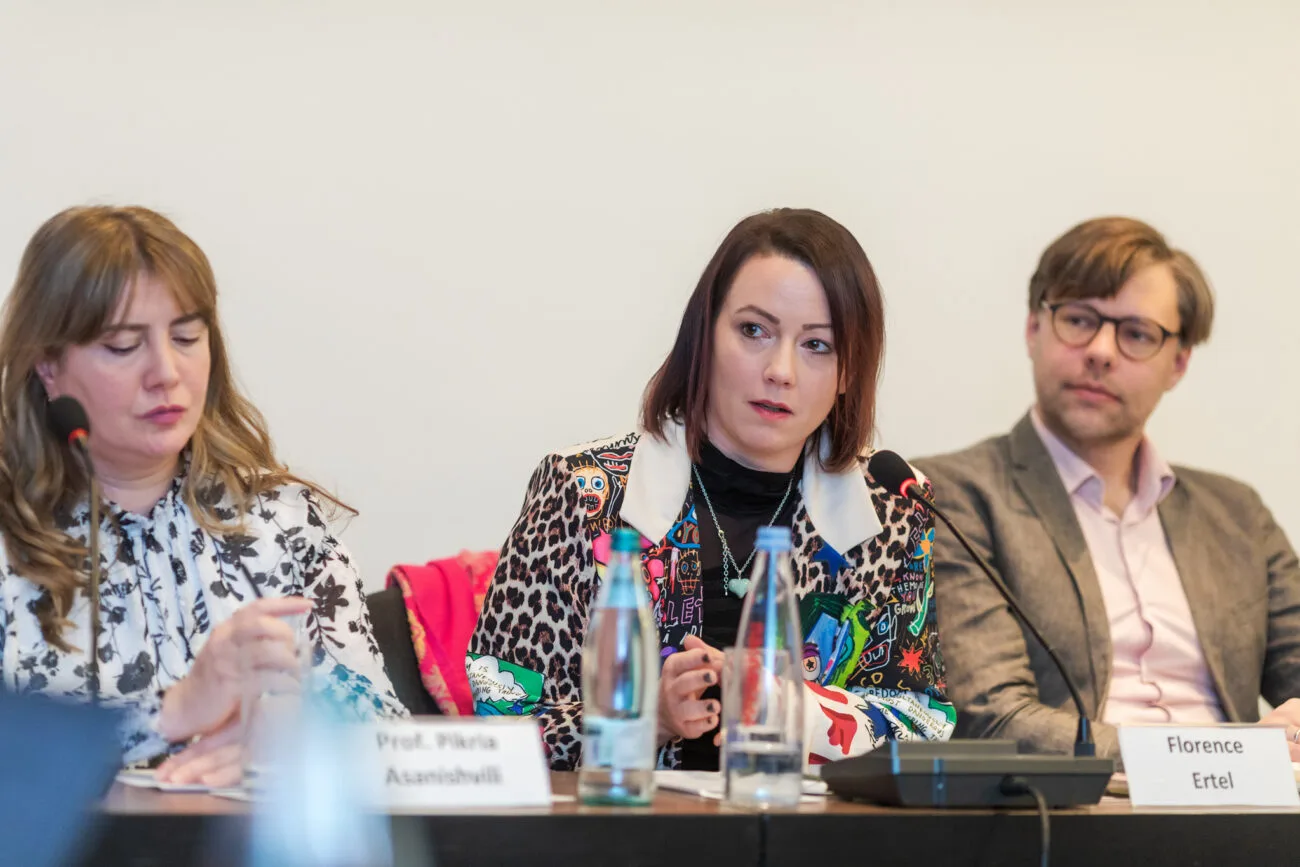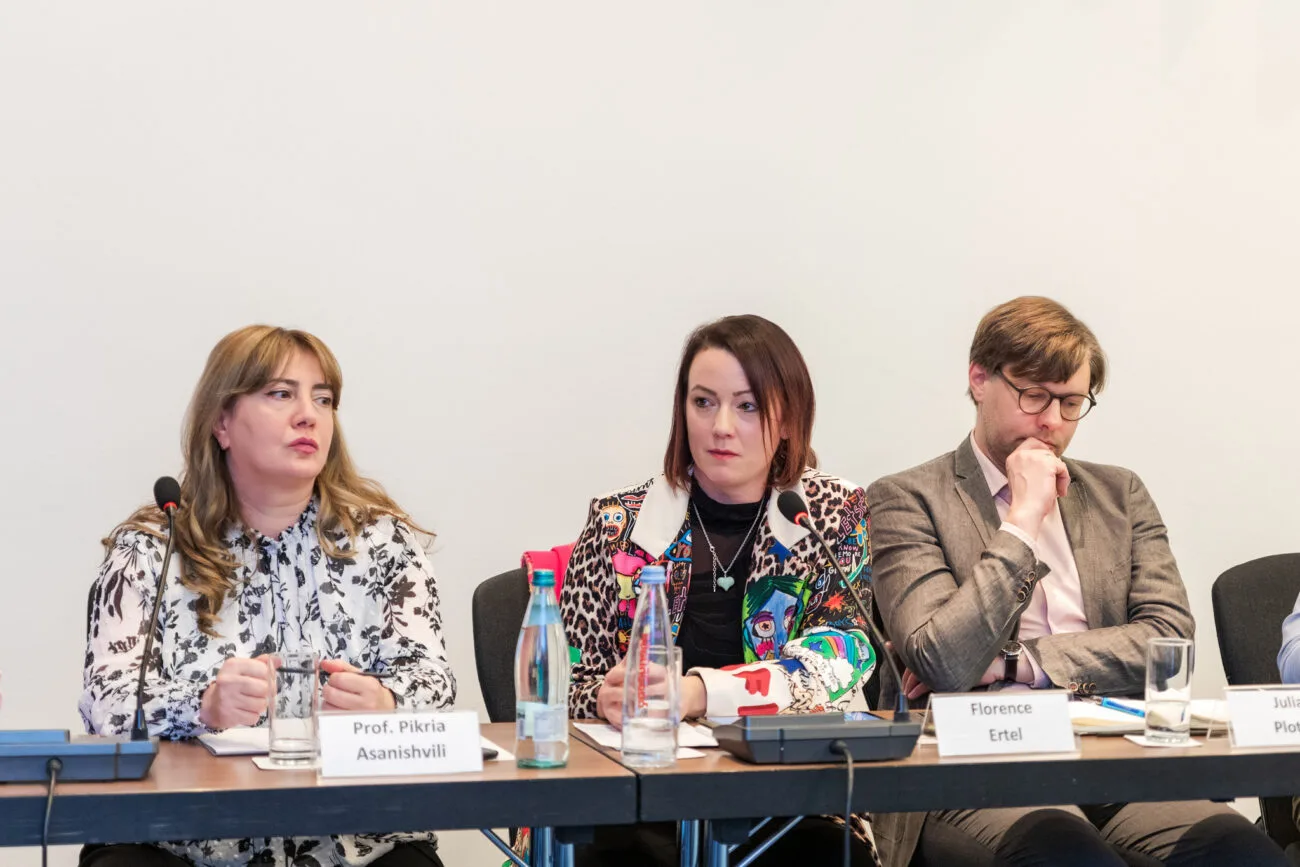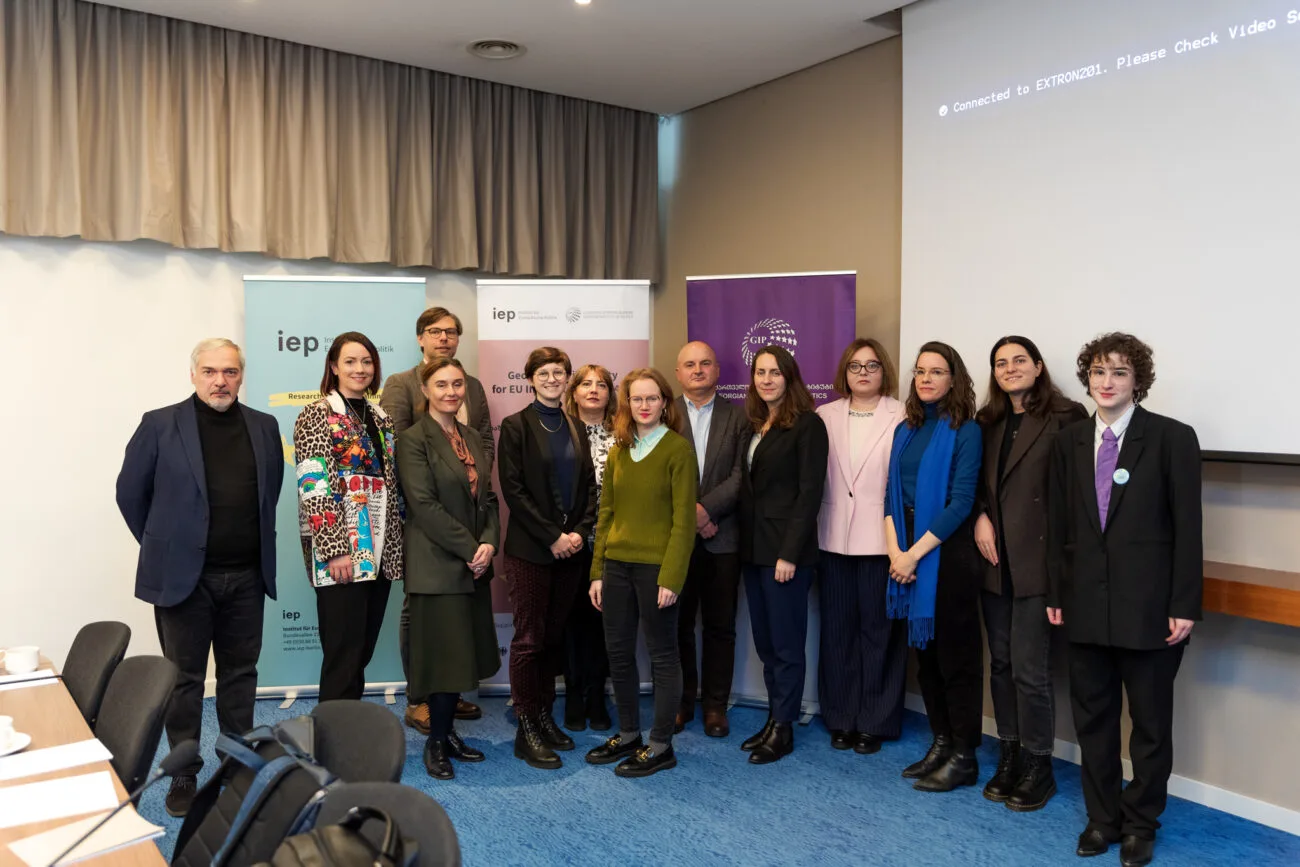On November 27, 2024, the Georgian Institute of Politics (GIP), in cooperation with the Institut für Europäische Politik (IEP) e.V. in Berlin, organized the GEO4EU Exchange Lab „Quo Vadis, Georgia?” with German and Georgian civil society representatives.
The Exchange Lab served as a platform for civil society representatives, policy experts, and journalists from Germany and Georgia to share their perspectives. It provided an overview of the current state of Georgian domestic politics and foreign policy and facilitated an open discussion about Georgia’s democratic prospects and the viewpoints of Germany and Europe on these issues.
The two-panel session was moderated by Prof. Kornely Kakachia, director of the Georgian Institute of Politics.
The first panel, titled “Erosion of Democracy in Georgia and Beyond,” addressed several key questions:
- Considering highly contested results of the Georgia’s parliamentary elections, what does it reveal about Georgia’s democracy? What are the main challenges we are facing?
- What can be the long-term consequences of democratic backsliding in Georgia?
- How can international partners effectively engage with Georgia, considering authoritarian backsliding and effectively frozen the EU accession process?
The agenda featured a panel of distinguished speakers – Sandro Baramidze (Transparency International Georgia), Nata Koridze (Civil.ge), Veronika Pfeilschifter (University of Jena), Dr. Franziska Smolnik (German Institute for International and Security Affair)
The second panel, titled “Georgia in the Context of International Turmoil,” included Prof. Eka Akobia (Caucasus University), Prof. Pikria Asanishvili (Ivane Javakhishvili Tbilisi State University), Florence Ertel (University of Passau), and Julian Plottka (Institut für Europäische Politik). The discussion focused on the following questions:
- What are the long-term risks for Georgia’s foreign policy if democratic backsliding continues unchecked?
- How will Georgia’s current foreign policy course affect the geopolitical dynamics in the region?
- What impact could the rise of populist and nationalist movements across Europe and the West have on Georgia’s democratization?
The event was organized with Institut für Europäische Politik (IEP) e.V. in Berlin in the framework of the project “Georgian Civil Society for EU Integration GEO4EU”, supported by the Federal Foreign Office through the Civil Society Cooperation Programme for the Eastern Partnership countries and Russia.


